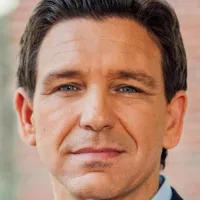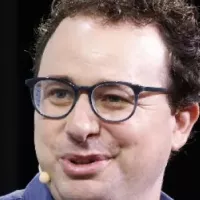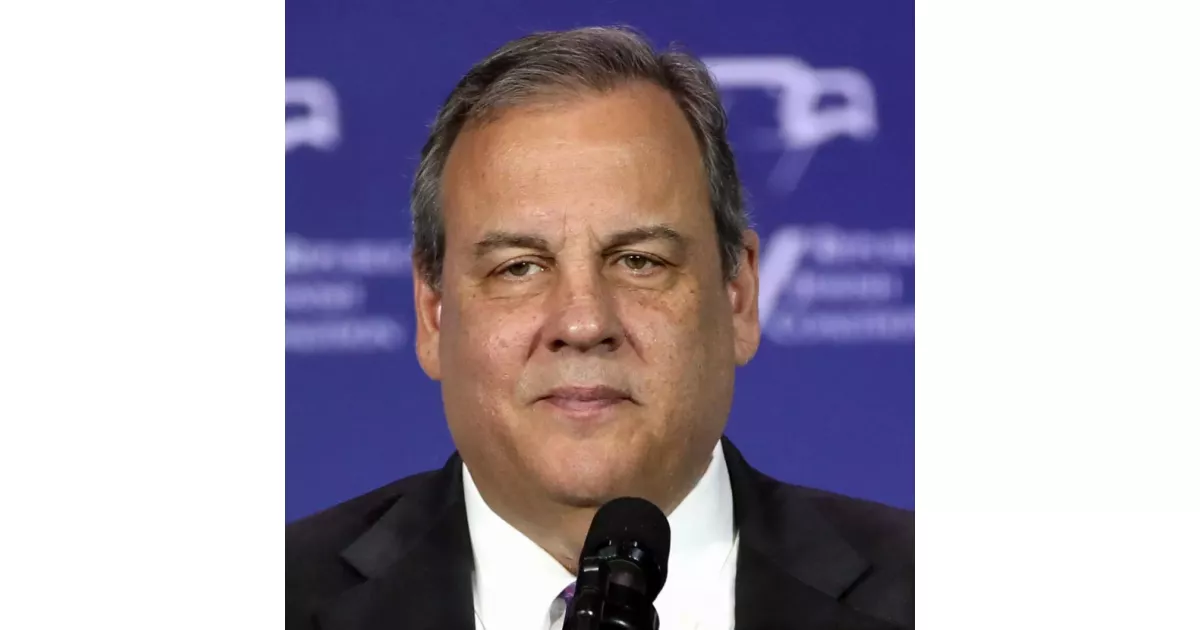Chris Christie is an American politician who served as the 55th Governor of New Jersey from 2010 to 2018. A Republican, he previously served as the U.S. Attorney for New Jersey (2002-2008) and as a Morris County commissioner (1995-1997). Christie has run for the Republican presidential nomination twice, in 2016 and 2024. Known for his direct and often confrontational style, his tenure as governor was marked by both successes, such as pension reform, and controversies, including the "Bridgegate" scandal.
1947: State Constitution Tradition
Since the 1947 state constitution, the New Jersey Supreme Court maintained a political balance.
September 6, 1962: Chris Christie Born
On September 6, 1962, Christopher James Christie was born.
1967: Family Moved to Livingston
After the 1967 Newark riots, Christie's family moved to Livingston, New Jersey.
1984: Graduated from the University of Delaware
In 1984, Chris Christie graduated from the University of Delaware.
1986: Marriage to Mary Pat Foster
In 1986, Chris Christie married Mary Pat Foster, a fellow student at the University of Delaware.
December 1987: Admitted to New Jersey State Bar Association
In December 1987, Chris Christie was admitted to the New Jersey State Bar Association.
1992: Volunteered for Bush Re-election Campaign
In 1992, Chris Christie volunteered for the re-election campaign of President George H. W. Bush in New Jersey.
1993: Named Partner at Law Firm
In 1993, Chris Christie was named a partner in the law firm of Dughi, Hewit & Palatucci.
1993: Birth of Son Andrew
In 1993, Chris Christie's son, Andrew, was born.
1994: Elected to Board of Chosen Freeholders
In 1994, Chris Christie was elected as a Republican to the Board of Chosen Freeholders for Morris County, New Jersey.
1994: Elected as Morris County Freeholder
In 1994, Chris Christie was elected as a county freeholder for Morris County, New Jersey.
1995: Announced Bid for New Jersey General Assembly
In 1995, Chris Christie announced a bid for a seat in the New Jersey General Assembly.
1996: Birth of Daughter Sarah
In 1996, Chris Christie's daughter, Sarah, was born.
1996: Enactment of Immigration and Nationality Act Section 287(g)
In 1996, section 287(g) of the Immigration and Nationality Act was enacted, which Christie has been critical about.
2000: Bush Campaign Lawyer
During the 2000 United States presidential election, Chris Christie served as George W. Bush's campaign lawyer for the state of New Jersey.
2000: Birth of Son Patrick
In 2000, Chris Christie's son, Patrick, was born.
December 7, 2001: Appointed U.S. Attorney
On December 7, 2001, President George W. Bush appointed Chris Christie the U.S. Attorney for the District of New Jersey.
2001: Wife Leaving Cantor Fitzgerald
In 2001, Mary Pat Christie left Cantor Fitzgerald following the September 11 attacks.
July 2002: Traffic Accident
In July 2002, Chris Christie was involved in a traffic accident that injured a motorcyclist in Elizabeth, New Jersey.
2002: Robert C. Janiszewski Conviction
In 2002, as U.S. Attorney, Chris Christie's office convicted Robert C. Janiszewski, the Democratic Hudson County Executive, on bribery charges.
2003: Birth of Daughter Bridget
In 2003, Chris Christie's daughter, Bridget, was born.
April 2005: Hemant Lakhani Conviction
In April 2005, British trader Hemant Lakhani was convicted by jury of attempting to provide material support to terrorists.
2005: Charles Kushner Plea Agreement
In 2005, Chris Christie negotiated a plea agreement with Charles Kushner, who pleaded guilty to multiple counts including illegal campaign contributions and tax evasion.
2005: Negotiated Deferred Prosecution Agreements
In 2005, Chris Christie negotiated seven deferred prosecution agreements (DPAs) during his tenure as U.S. Attorney.
2006: Issued Subpoena Regarding Menendez
In 2006, Christie issued a subpoena regarding Robert Menendez 65 days before the Senate election.
2006: John A. Lynch Jr. Conviction
In 2006, as U.S. Attorney, Chris Christie's office convicted former Democratic New Jersey Senate President John A. Lynch Jr., on charges of mail fraud and tax evasion.
2007: Prosecution of Fort Dix attack plot planners
In 2007, Chris Christie prosecuted the planners of the averted 2007 Fort Dix attack plot, which he has frequently mentioned as a career highlight.
December 1, 2008: End of U.S. Attorney Tenure
On December 1, 2008, Chris Christie's tenure as U.S. Attorney came to an end.
2008: Sharpe James and Wayne R. Bryant Convictions
In 2008, as U.S. Attorney, Chris Christie's office convicted State Senator and former Newark Democratic mayor Sharpe James and Democratic State Senator Wayne R. Bryant on fraud and bribery charges respectively.
2008: Reference to the 2008 Recession
In the years after the 2008 recession Christie noted a need for increased state revenue, and in February 2013, online gambling was legalized in New Jersey.
January 8, 2009: Filed for Governor
On January 8, 2009, Chris Christie filed as a candidate for the office of governor.
September 2009: Accident Revealed During Gubernatorial Run
In September 2009, the July 2002 traffic accident involving Chris Christie came to light while he was running for governor.
2009: Supported Enforcement of Gun Laws
In 2009 when announcing his candidacy, Christie stated he supported aggressive enforcement of New Jersey's current gun laws.
2009: Identified as Anti-Abortion
In 2009, Christie identified himself as anti-abortion, but stated he would not force his views on others, while still supporting certain restrictions.
2009: Opposition to Same-Sex Marriage
In 2009, Christie indicated he would veto any bill legalizing same-sex marriage in New Jersey, stating marriage should be exclusively between one man and one woman.
2009: Attempted settlement with Exxon Mobil
In 2009, Jon Corzine's administration attempted to settle with Exxon Mobil for $550 million before a ruling that strengthened the state's bargaining position.
January 19, 2010: Took Office as Governor
On January 19, 2010, Chris Christie took office as Governor of New Jersey.
February 2010: Declared Fiscal Emergency
In February 2010, Christie signed an executive order declaring a "state of fiscal emergency" due to the projected $2.2 billion budget deficit for that fiscal year.
March 2010: Signed State Pension Reform Bills
In March 2010, Christie signed into law three state pension reform bills, which had passed with bipartisan support.
May 2010: Non-renomination of Justice John E. Wallace Jr.
In May 2010, Christie chose not to renominate Justice John E. Wallace Jr., breaking with the tradition of political balance in the New Jersey Supreme Court.
August 2010: Signed Wind Power Development Act
In August 2010, Chris Christie signed legislation to encourage the development of wind power in New Jersey at the Port of Paulsboro.
August 25, 2010: Race to the Top Grant Issue
On August 25, 2010, it was announced that New Jersey would not receive $400 million in federal Race to the Top education grants due to a clerical error.
December 2010: Commutation of Brian Aitken's Sentence
In December 2010, Christie commuted the seven-year sentence of Brian Aitken, who had been convicted of transporting three guns within the state.
2010: Cancellation of Access to the Region's Core Project
In 2010, Christie cancelled the Access to the Region's Core project, citing escalating costs, which would have constructed new tunnels under the Hudson River.
January 2011: Approved New Charter Schools
In January 2011, the Christie administration approved 23 new charter schools, including New Jersey's first independent school for children with autism.
May 26, 2011: Pulled State Out of Regional Greenhouse Gas Initiative
On May 26, 2011, Chris Christie announced he would pull the state out of the Regional Greenhouse Gas Initiative.
June 2011: Announced Pension and Benefits Reform Deal
In June 2011, Christie announced a deal with the Democratic leadership of the legislature on a reform of public employee pensions and benefits.
June 2011: Utilized Line-Item Veto on Budget
In late June 2011, Christie utilized New Jersey's line-item veto to eliminate nearly $1 billion from the proposed budget.
July 1, 2011: Budget Signed Into Law
In late June but signed on July 1, 2011, Christie utilized New Jersey's line-item veto to eliminate nearly $1 billion from the proposed budget, signing it into law just hours prior to July 1, 2011, the beginning of the state's fiscal year.
October 5, 2011: Menendez Investigation Cleared
On October 5, 2011, the investigation of Robert Menendez, which started before Christie left office as U.S. Attorney, was finally cleared.
2011: Amtrak's Gateway Project Unveiled
In 2011, shortly after the cancellation of the Access to the Region's Core project, Amtrak's Gateway Project was unveiled.
February 17, 2012: Veto of Same-Sex Marriage Legalization Bill
On February 17, 2012, Christie vetoed a bill that would have legalized same-sex marriage in New Jersey, proposing a statewide ballot referendum instead.
April 2012: Christie visits Israel on trade mission
In April 2012, Chris Christie traveled to Israel on a trade mission, meeting with Prime Minister Benjamin Netanyahu and President Shimon Peres, and commenting on Jerusalem's status under Israeli control.
August 6, 2012: Signed Law Reforming Teacher Tenure
On August 6, 2012, Christie signed a law reforming the tenure system for New Jersey public-school teachers.
August 2012: Christie gives keynote address at Republican National Convention
In August 2012, Chris Christie delivered the keynote address at the Republican National Convention.
September 21, 2012: Signing and Conditional Veto of Gender Parity Bills
On September 21, 2012, Christie signed Assembly Bill No. 2647 into law, requiring employers to post notice of employees' rights to gender-equal pay, but conditionally vetoed other gender parity bills.
October 30, 2012: Christie praises Obama's Hurricane Sandy relief efforts
On October 30, 2012, during a press conference about Hurricane Sandy, Chris Christie praised President Barack Obama's disaster relief efforts.
November 2012: Filed for Second Term
In November 2012, Christie filed papers to run for a second term as Governor of New Jersey.
December 28, 2012: Senate approves Hurricane Sandy relief package
On December 28, 2012, the U.S. Senate approved a $60.4 billion disaster relief package for Hurricane Sandy, which impacted New Jersey and other states.
2012: Received B Grade from Cato Institute
In 2012, Christie received a B grade from the Cato Institute in their biennial fiscal policy report on America's governors.
January 2013: Veto of minimum wage increase bill
In January 2013, Christie vetoed a bill from the New Jersey Legislature that would have raised the minimum wage from $7.25 to $8.50 per hour.
February 2013: Lap-Band Stomach Surgery
In February 2013, Chris Christie underwent lap-band stomach surgery to address concerns about his weight and health.
February 2013: Legalized Online Gambling
In February 2013, online gambling was legalized in New Jersey after the state's Legislature passed Bill A2578, which was later signed into law by Christie.
March 6, 2013: Proposed Regulations to Overhaul Teacher Evaluation
On March 6, 2013, the Christie administration released proposed regulations to overhaul the process of evaluating public-school teachers.
June 2013: Signed $33 Billion State Budget
In June 2013, Christie signed a $33 billion state budget that makes a record $1.7 billion payment to the state's pension fund and also increases school funding by almost $100 million.
June 2013: Veto of animal welfare bill
In June 2013, Christie vetoed S1921, an animal welfare bill introduced by the Humane Society of the United States to prohibit the use of gestation crates on pregnant pigs in the state, despite its wide support in the General Assembly and the Senate.
August 19, 2013: Signing of Gay Conversion Therapy Ban
On August 19, 2013, Christie signed a bill outlawing gay conversion therapy for children, making New Jersey the second state to institute such a law.
September 13, 2013: Lane closures end after five days
On September 13, 2013, the traffic lanes accessing the George Washington Bridge from Fort Lee, NJ, that had been closed for five days, were reopened after causing massive traffic congestion.
September 18, 2013: Signed Business Tax Incentive Overhaul
On September 18, 2013, Christie signed legislation to overhaul the state's business tax incentive programs.
October 18, 2013: Denial of Stay Request by State Supreme Court
On October 18, 2013, the state supreme court denied the Christie administration's request for a stay of the decision mandating equal protection for same-sex couples.
November 5, 2013: Christie Reelected Governor
On November 5, 2013, Christie was reelected as Governor of New Jersey by a large margin, defeating Barbara Buono.
November 2013: Christie elected chairman of Republican Governors Association
In November 2013, Chris Christie was elected chairman of the Republican Governors Association, succeeding Louisiana Governor Bobby Jindal.
December 2013: Legislation for unauthorized immigrants
In December 2013, Christie signed legislation allowing unauthorized immigrants who attend high school for at least three years in New Jersey and graduate to be eligible for resident rates at state colleges, universities, and community colleges.
2013: Did not defend a legal challenge to a New Jersey law
In 2013, Christie chose not to defend a legal challenge to a New Jersey law requiring individuals to prove an urgent threat of violence before getting permits to carry handguns.
2013: Signed bill to allow medical cannabis for children.
In 2013, Christie signed a bill to more easily allow the use of medical cannabis by children in New Jersey.
February 3, 2014: Christie denies knowledge of lane closures
On February 3, 2014, Chris Christie stated he had no prior knowledge or involvement in the George Washington Bridge lane closures, claiming he first learned of the traffic jams from The Wall Street Journal.
March 2014: Court Ruled Christie Acted Illegally
In March 2014, the court ruled that Christie had acted illegally in pulling the state out of Regional Greenhouse Gas Initiative.
May 2014: Cut Pension Fund Contributions
In May 2014, Christie cut the contributions to New Jersey public workers' pension funds for a 14-month period by nearly $2.5 billion to deal with a revenue shortfall in the state budget.
July 2014: Vetoed Legislation on Ammunition Magazines
In July 2014, Christie vetoed legislation that would have reduced the allowed legal size of ammunition magazines and proposed a new standard for involuntary commitment of people with mental illness.
September 2014: Signed Partnership with Mexico on Higher Education
In September 2014, Christie signed a partnership with Mexico on a higher-education project to foster economic cooperation.
September 2014: Upholding of Gay Conversion Therapy Ban
In September 2014, a panel of the 3rd U.S. Circuit Court of Appeals upheld the law banning gay conversion therapy in New Jersey.
September 18, 2014: Federal sources claim Christie had no knowledge of Bridgegate
On September 18, 2014, WNBC reported that unnamed federal sources said the US attorney investigation had found no evidence that Christie had prior knowledge of or directed the closures.
October 2014: Signed Bill to Legalize Sports Betting
In October 2014, Christie signed a bill to legalize sports betting in New Jersey.
October 2014: Proposed bill banning gestation crates
In October 2014, a similar bill banning gestation crates, S998, was proposed and passed in the Senate and Assembly.
November 27, 2014: Veto of bill banning gestation crates
On November 27, 2014, Christie vetoed a bill banning gestation crates, after indicating he would do so while campaigning in Iowa.
December 2014: Interim report on Bridgegate released
In December 2014, an interim report by the New Jersey legislative committee investigating the George Washington Bridge lane closures was released, but it was unable to determine if Christie had advance knowledge.
2014: Hydraulic Fracturing Ban Vetoed
In 2014, Chris Christie rejected permanent bans on hydraulic fracturing (fracking) in New Jersey and vetoed measures that would ban the process and disposal of hydraulic fracturing waste in the State.
2014: Authorized Increase of Licensing and Administrative Fees
In 2014, Christie authorized the increase of numerous other fees charged by the state for various licensing and administrative fees.
2014: Received B Grade from Cato Institute
In 2014, Christie received a B grade from the Cato Institute in their biennial fiscal policy report on America's governors.
2014: "Pro-life governor" statement
In 2014, while campaigning in Alabama, Christie stated he was the first "pro-life governor" elected in New Jersey since Roe v. Wade in 1973 and mentioned vetoing Planned Parenthood funding five times.
March 2015: Endorsement of abortion ban after 20 weeks
In March 2015, Christie joined other potential 2016 Republican presidential candidates in endorsing a ban on abortions after 20 weeks of pregnancy.
April 2015: Wife's Wall Street Role
As of April 2015 Mary Pat Christie was a managing director at the Wall Street investment firm Angelo, Gordon & Co.
May 1, 2015: No further charges to be brought in Bridgegate case
On May 1, 2015, U.S. attorney Paul J. Fishman announced that his office would not bring any more charges in the "Bridgegate" case based on available evidence.
June 27, 2015: Christie launches presidential campaign website
On June 27, 2015, Chris Christie launched his website as a formal step toward a presidential candidacy.
June 30, 2015: Announced Candidacy for President
On June 30, 2015, Chris Christie announced his candidacy for the Republican nomination in the 2016 presidential election.
July 2015: Vetoed bill regarding mental health records and firearm purchases
In July 2015, Christie vetoed a bill requiring individuals seeking to expunge their mental health records to notify law enforcement when petitioning the court to purchase a firearm.
October 2015: Senate vote to override veto
In October 2015, the New Jersey Senate voted to override Christie's veto.
February 10, 2016: Dropping out of Presidential Race
On February 10, 2016, Chris Christie dropped out of the presidential race after a poor showing and low poll numbers in the New Hampshire primary, where he received 7.4% of the overall vote.
February 26, 2016: Endorsing Donald Trump
Despite previously criticizing Donald Trump, on February 26, 2016, Chris Christie endorsed Trump for president.
May 9, 2016: Heading Trump's Transition Team
On May 9, 2016, Donald Trump appointed Chris Christie to head his transition team in anticipation of a potential Trump presidency, leading to Christie becoming a major figure in the Trump campaign.
September 2016: Acknowledging Bridgegate Scandal
In September 2016, Chris Christie acknowledged that the Fort Lee lane closure scandal, also known as Bridgegate, played a role in his being denied the nomination.
September 2016: Prosecutors allege boasting to Christie about Bridgegate
In September 2016, federal prosecutors in the trial of two New Jersey government officials over their involvement in "Bridgegate" said that a defendant and a witness boasted about their actions to the governor at the time.
October 13, 2016: Misconduct complaint against Christie allowed to proceed
On October 13, 2016, a complaint of official misconduct was allowed to proceed, alleging that Christie knew about the George Washington Bridge lane closures while they were ongoing but failed to act.
November 4, 2016: Christie aides convicted in Bridgegate trial
On November 4, 2016, former top Christie aides Bill Baroni and Bridget Anne Kelly were convicted on all charges in the George Washington Bridge lane closure trial.
2016: Criticizing Trump During Campaign
During the 2016 campaign and thereafter, Christie focused on attacking Trump, including at his campaign launch.
2016: Presidential Candidates Abortion Views
In 2016, Chris Christie and other presidential candidates endorsed a ban on abortions after 20 weeks of pregnancy.
January 2017: No criminal charges against Christie in Bridgegate scandal
In January 2017, Bergen County prosecutors announced they would not seek criminal charges against Christie in connection with the George Washington Bridge lane closure scandal.
February 2017: Turning Down Secretary of Labor Role
In February 2017, Chris Christie reportedly turned down the role of Secretary of Labor.
March 2017: Baroni and Kelly sentenced for Bridgegate
In March 2017, Bill Baroni was sentenced to two years in prison and Bridget Anne Kelly to 18 months in prison for their involvement in the George Washington Bridge lane closure scandal.
March 2017: Chairing Opioid and Drug Abuse Commission
In March 2017, Donald Trump selected Chris Christie to chair the Opioid and Drug Abuse Commission.
July 2017: Christie vacations on closed beach during shutdown
In July 2017, during a budget shutdown, Governor Chris Christie and his family were photographed vacationing on a beach closed to the public at Island Beach State Park, drawing criticism.
2017: Criticism of School Funding Proposal
In 2017, Chris Christie's school funding proposal was described by education researchers as "one of the least equitable in the country".
2017: Conditional Veto of Child Marriage Ban Bill
In 2017, Christie conditionally vetoed a bill that would have banned child marriages in New Jersey, suggesting a complete ban for those under 16 and judicial approval for those aged 16 and 17.
January 2018: Joining ABC News
In January 2018, Chris Christie joined ABC News as a regular network contributor.
January 2018: End of Governorship
In January 2018, Chris Christie's term as governor of New Jersey concluded.
January 2018: Bump Stock Ban
In January 2018, during his final days as Governor of New Jersey, Christie signed legislation making bump stocks illegal in the state.
January 16, 2018: Christie leaves office
On January 16, 2018, Chris Christie left office as Governor of New Jersey with low approval ratings.
May 2018: Christie's record handling questioned after leaving office
In May 2018, Christie's handling of office records and denial of access to electronic records related to Jared Kushner's business dealings came under scrutiny, following his departure from office.
November 2018: Considered for Attorney General Role
In November 2018, Chris Christie was considered for the role of United States Attorney General by the Trump administration.
December 2018: Declining White House Chief of Staff Job
In December 2018, Chris Christie declined consideration for the job of White House Chief of Staff.
2018: Started Lobbying Firm
In 2018 Christie started a federal lobbying firm called Christie 55 Solutions.
2018: End of Governorship
In 2018, Chris Christie's term as Governor of New Jersey expired.
2018: Change of position on federal enforcement of marijuana laws
In 2018, Christie changed his position on the federal enforcement of marijuana laws, stating that while he still personally opposes legalization, he believes the states have the right to legalize it.
2018: New Jersey bans marriage for everyone under the age of majority
In 2018, after Christie left office, New Jersey became the second state in the Union to prohibit marriage for everyone under the age of majority.
January 2019: Publishing "Let Me Finish"
In January 2019, Chris Christie published his book, "Let Me Finish".
May 2019: Joining WeRecover as Senior Advisor
In May 2019, Chris Christie joined WeRecover, a tech firm, as Senior Advisor on Strategy and Public Policy.
June 2019: Report on Christie's Administration Concerns Released
In June 2019, an 18-page report was released outlining questions and potential concerns regarding Chris Christie joining the Trump administration.
May 7, 2020: Supreme Court overturns Bridgegate convictions
On May 7, 2020, the U.S. Supreme Court overturned the convictions of Bill Baroni and Bridget Anne Kelly in the Bridgegate scandal.
May 2020: Stating COVID-19 Measures Should Be Lifted
In May 2020, Chris Christie stated that measures taken during the COVID-19 pandemic in the United States should be lifted for economic reasons.
September 29, 2020: Aiding Trump's Debate Preparations
On September 29, 2020, Chris Christie helped President Trump prepare for his first debate with Joe Biden, participating in prep sessions at the White House without facial coverings despite the ongoing COVID-19 pandemic.
October 3, 2020: Positive COVID-19 Test and Hospitalization
On October 3, 2020, Chris Christie tested positive for COVID-19 and was admitted to Morristown Medical Center in New Jersey due to his asthma.
December 2020: Considering 2024 Presidential Run
In December 2020, Chris Christie told Hugh Hewitt that he was considering running for president in 2024, even if Donald Trump decided to run.
2020: Millionaire Tax Passed
In 2020, after Democrat Phil Murphy became governor, the millionaire tax was eventually passed into law.
January 6, 2021: Attack on the U.S. Capitol
After the January 6, 2021, attack on the U.S. Capitol, Chris Christie distanced himself from Donald Trump.
March 2021: Joining Mets Board of Directors
In March 2021, Chris Christie joined the board of directors of the New York Mets front office.
September 9, 2021: Speech at Ronald Reagan Library
On September 9, 2021, Chris Christie delivered a speech at the Ronald Reagan Library, imploring Republicans to reject extreme elements like QAnon and election fraud conspiracy theorists.
2021: Renewable Generation Target Year
By 2021, the Governor pledged to ban coal-fired power plants, and to reach 22.5% renewable generation in the state.
2021: Republican Rescue Book Release
In 2021, Chris Christie's book, "Republican Rescue", was released, in which he recounts his experience with COVID-19 and a call from Donald Trump during his hospitalization.
2021: Ceased Lobbying Firm Operations
In 2021, Christie's federal lobbying firm, Christie 55 Solutions, ceased its operations.
October 2022: Open to a 2024 Presidential Bid
In October 2022, Chris Christie expressed openness to a potential 2024 presidential bid while appearing on Real Time with Bill Maher.
March 16, 2023: Announcing Decision Timeline for Presidential Run
On March 16, 2023, Chris Christie announced he would decide within 45 to 60 days whether to run for president, during which time he criticized Ron DeSantis.
May 31, 2023: Planning Presidential Campaign Announcement
On May 31, 2023, it was reported that Chris Christie was planning to announce his presidential campaign in the coming days.
June 2023: Remaining on Mets Board During Presidential Run
In June 2023, it was reported that Chris Christie would remain on the board of directors of the New York Mets while running for president.
August 4, 2023: Visiting Ukraine
On August 4, 2023, Chris Christie made an unannounced trip to Ukraine, visiting Bucha and meeting with President Volodymyr Zelenskyy to express his support.
2023: Construction began for Amtrak's Gateway Project
Construction began in 2023 for Amtrak's Gateway Project.
2023: Predicting Trump Conviction
Earlier in 2023, Christie predicted Trump would be convicted in at least one of his trials by spring 2024, and called him unqualified for the presidency.
2023: Abortion as a state issue
In 2023, Christie stated he believed that abortion should be a state-by-state issue and opposed a federal ban on abortion.
January 10, 2024: Dropping Out of 2024 Presidential Race
On January 10, 2024, Chris Christie dropped out of the presidential race at a town hall meeting in Windham, stressing his decision was made to prevent vote splitting and ensure Trump did not win the primary.
April 4, 2024: No Labels Abandon Unity Ticket
On April 4, 2024, No Labels officially abandoned its attempt to run a "unity ticket" after being unable to find a suitable candidate, of which Christie was one of the finalists.
May 2024: Trump Conviction
In May 2024, Donald Trump was ultimately convicted in his New York hush money trial.
2024: Opposition to Gender Affirming Care Bans for Minors
During his 2024 campaign, Christie stated that he opposes Republican-proposed bans on gender affirming care for minors, supporting parental involvement instead.
2024: Teaching at Yale
In 2024, Christie began teaching a course at Yale University.
2024: Respects Same-Sex Marriage
In 2024, after announcing his candidacy for the Republican presidential primaries, Christie's campaign said that the former governor currently "respects same-sex marriage and considers it legally settled."
2024: Potential Presidential Run
In December 2020, Christie considered running for president in 2024.
2025: Endorsement in Gubernatorial Election
In 2025, Christie endorsed State Senator Jon Bramnick in the gubernatorial election.
Mentioned in this timeline

Donald John Trump is an American politician media personality and...

Ron DeSantis is an American politician who has served as...
Ukraine is a country in Eastern Europe the second-largest on...

Barack Obama the th U S President - was the...

George W Bush the rd U S President - is...

Benjamin Bibi Netanyahu is a prominent Israeli politician and diplomat...
Trending

36 minutes ago Selena Gomez's Spiced-Plum Manicure and TikTok Clone Theory Spark Buzz

36 minutes ago Kit Harington and Sophie Turner Gag After On-Screen Kiss in New Movie

37 minutes ago Trump administration updates, Iran nuclear efforts, and White House controversies unfold.

37 minutes ago Dario Amodei Highlights India's Central Role in Shaping AI's Future at AI Summit.

2 hours ago Yoon Suk Yeol, South Korean ex-president, receives life sentence for insurrection and martial law.

4 hours ago Maya Hawke and Christian Lee Hutson celebrated wedding with Stranger Things cast present.
Popular

Jesse Jackson is an American civil rights activist politician and...
Randall Adam Fine is an American politician a Republican who...

Pam Bondi is an American attorney lobbyist and politician currently...

Barack Obama the th U S President - was the...

Martin Luther King Jr was a pivotal leader in the...

Ken Paxton is an American politician and lawyer serving as...
